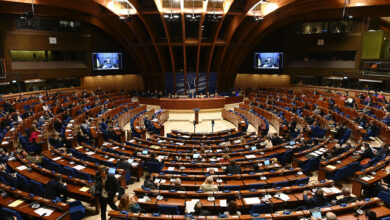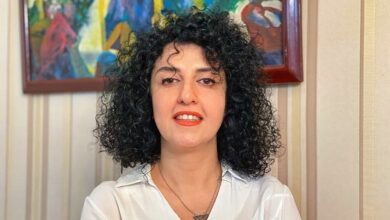A leading rights group slammed Egypt on Monday for alleged human rights violations and a lack of religious freedom.
The New York-based Human Rights Watch (HRW) noted in its latest annual world report that Egyptian authorities had responded to recent incidents of sectarian violence in typical fashion, “merely urging the parties to drop complaints and not pursuing criminal investigations or holding perpetrators accountable.”
The report cited the 2010 Nagaa Hammadi incident, in which a Muslim man shot dead six Coptic Christians on the eve of Coptic Christmas, as well as the more recent New Year’s Eve bombing of a Coptic Church in Alexandria in which 23 people were killed.
This month, an Egyptian court sentenced Mohammed Ahmad Hossein, also known as Hamam Kammouni, to death for his role in the Nagaa Hammadi slaying.
HRW also blasted Egypt for showing official intolerance towards heterodox Muslim sects, such as the Shia and Ahmadi faiths.
The organization documented at least nine arrests of members of the Ahmadi faith by Egypt’s State Security Investigations (SSI). According to HRW, the men were detained for 80 days on charges of "showing contempt for the Islamic faith."
Members of the Ahmadi faith follow the teachings of 19th-century sect founder Mirza Ghulam Ahmad, who they regard as a prophet. Sunni Muslims believe that Prophet Mohammed was the final prophet, and therefore see the Ahmadi faith as heretical.
As for adherents of the Shia faith, the rights group noted that, “Security officials continued to detain eight adherents of the Shia faith under successive emergency law detention orders.”
Apart from its large Christian minority, estimated at roughly 10 percent of the country’s population of 80 million, Egypt is overwhelmingly Sunni Muslim. Some local rights groups claim that non-Sunni Muslims, including Shias, face systematic intimidation by security forces.
The HRW report also sheds light on other alleged human rights violations. These include the targeting of freedom of expression, cracking down on freedom of assembly, engaging in torture and the use of forced disappearances.
“Egypt continued to suppress political dissent in 2010, dispersing demonstrations; harassing rights activists; and detaining journalists, bloggers and Muslim Brotherhood members. Security officers used lethal force against migrants attempting to cross into Israel and arbitrarily detained recognized refugees,” the report stated.
It went on to note that security agencies had targeted bloggers and journalists who criticized government policy and exposed human rights violations, as well as activists who supported Mohamed ElBaradei's National Association for Change reform movement.
“In the run-up to the parliamentary elections [late last year], the government on 13 October brought all live broadcasts by private companies under control of state television, and on 1 November issued directives requiring prior permission for every live broadcast,” the HRW report stated.
More worrying still, the report noted that the number of cases of forced disappearances in Egypt had risen in 2010 from previous years.
“Officials of SSI appear to have ‘disappeared’ more political detainees in 2010,” the report reads. “Security officers ‘disappeared’ those accused of membership in Islamic groups for up to three months and also ‘disappeared’ young political activists for several days.”
What’s more, the number of cases of unfair trials also rose significantly in 2010, according to HRW.
“Twenty-five defendants accused of membership in a terrorist organization, the so-called Zeitoun trial, has already been marred by the incommunicado detention of the defendants,” the report states.
HRW also highlighted a number of cases of ill-treatment of African refugees and migrants, noting that Egyptian border authorities had shot dead at least 27 migrants attempting to cross into Israel since the beginning of 2010.




